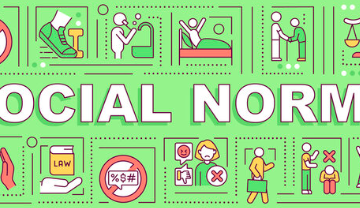Our twenties are often romanticized as the best decade of our lives—a time of freedom, exploration, and endless potential. However, if you ask someone in their twenties how they’re truly feeling, you’ll frequently hear a different story: identity difficulties, crippling future dread, the pressure of social comparisons, and the unanticipated creep of loneliness.
Although mental health issues are prevalent in this decade, it is completely possible to thrive in our twenties if we have the correct resources and attitude. Here’s how to overcome these obstacles and enjoy the ride.
Understand The Unique Pressures of Your Twenties
First and foremost, it’s critical to acknowledge that the years of our twenties are a time of unique pressures. Making decisions about a profession, housing, relationships, and, for some, starting a family are all part of this time of life. Social networking is also not helpful. Everyone shares highlights of their “perfect lives,” so when we’re not on the same level, it’s easy to feel like we’re lagging behind or that something is wrong with us.
Realizing that your twenties don’t have to fit a certain stereotype is the first step towards surviving in the face of these demands. Your path will be distinct. Recognize that there is no one “right way” to live this decade in order to relieve some of the burden.
Make mental health a top priority
It’s simple to overlook mental wellness in a society that prioritizes output and achievements. However, mental well-being is fundamental. Everything else will suffer without it, including relationships and professional success. Everyone’s approach to prioritizing mental health is different, but here are some ideas:
- Therapy: You can develop a strong support network, discover coping mechanisms, and work through challenging emotions by speaking with a therapist.
- Meditation and mindfulness are techniques that can help you manage stress, feel more present, and quiet your thoughts.
- Frequent Exercise: By lowering stress and producing endorphins, physical activity has a significant positive effect on mental health.
- Sleep: Getting enough sleep is essential for mental health management. Give it top priority.
Consider mental wellness to be an ongoing process rather than a final goal. It necessitates self-compassion, consistent attention, and acceptance that both good and bad days will occur.
Accept Uncertainty and Personal Growth
The focus of our twenties is self-discovery. Determining your identity and goals can be extremely difficult, particularly when uncertainty makes you feel uneasy. Feeling lost occasionally is normal, yet growth can result from accepting that ambiguity.
Consider uncertainty as an opportunity to explore, make mistakes, and gain knowledge rather than as something to be afraid of. Every step—even the mistakes—brings you one step closer to knowing who you are. Clarity can be obtained by journaling, meditation, or even candid conversations about your dreams and anxieties with friends. Keep in mind that it’s acceptable if you are not the same person you are now and will be in a few years.
Cultivate Healthy Relationships
Having a solid support system is one of the most important factors in prospering in any stage of life, but it’s particularly important in your twenties. Mentors, family, and friendships all have a big impact on your mental and emotional health. Finding people that inspire you to be your true self, support your progress, and uplift you is essential to developing successful relationships.
Keep in mind that it’s acceptable to move on from relationships that don’t work for you. It’s normal to have different relationships with the individuals you’re closest to at 22 and 29. Prioritize connections that are mutually beneficial, safe, and consistent with your values.
Establish Boundaries
It can be difficult to set boundaries, particularly in a culture that occasionally confuses success with overworking or kindness with pleasing others. However, setting boundaries is crucial for your wellbeing. They provide you time and space to rest, think, and prioritize your priorities.
- In the workplace, it’s critical to learn how to say “no” to initiatives that are too demanding or to advocate for time off. In our twenties, burnout is normal, especially as we strive for professional success. Recognize that your mental health does not have to suffer in order to achieve success.
- In Relationships: Respecting one another’s limits is a sign of a healthy partnership. Don’t be scared to express what you need, whether it’s time alone, space, or assistance with your mental health journey.
Confront Social Comparisons Head-On and Develop Self-Compassion
Comparing ourselves to others has become more common thanks to social media. It’s simple to feel like you’re failing when you watch your friends getting engaged, traveling the world, or securing their ideal jobs. In actuality, comparison steals happiness. It skews our viewpoint, making it difficult to concentrate on our individual journey.
Self-compassion is essential. Remember that every person has a unique journey, and that doesn’t diminish the significance of yours. Gratitude exercises, such as listing three things for which you are thankful each day, can also help you appreciate your own life and divert your attention from comparisons.
Create Stress and Anxiety Coping Strategies
Being in your twenties might cause worry. Financial hardship, personal or work-related stress, and uncertainty can all accumulate. Coping strategies can assist you in controlling this worry before it becomes too much to handle.
- Practice Breathing Techniques: During stressful situations, deep breathing exercises can help lower anxiety. Inhale for four counts, hold for seven, and exhale for eight. This is the 4-7-8 technique.
- Take Part in Hobbies: Whether it’s cooking, dancing, painting, or writing, taking part in hobbies allows you to release tension and gives your mind a respite from worrying.
- Seek Assistance: You don’t have to deal with worry on your own. You can find respite and fresh insights on your stress by speaking with friends, family, or a therapist.
Be patient and embrace growth
It takes time to thrive; growth is a continuous process. The secret to getting through your twenties is to be patient with yourself. Growth occurs gradually, yet it’s tempting to be hard on ourselves or get upset by failures. Developing resilience, self-awareness, and adaptability are the obstacles you are currently facing.
Remember that having everything figured out is not necessary for thriving. It entails putting yourself first each day, trying your hardest, and understanding that it’s acceptable to take things slowly.
Embracing the highs, handling the lows, and realizing that your twenties are a learning curve are all essential to thriving in this decade. There will be happy, sad, perplexing, and enlightening times. You can go through these years in a way that lays the groundwork for long-term wellbeing by putting your mental health first, establishing boundaries, establishing healthy connections, and developing self-compassion.
Recall that attaining perfection is not the goal of thriving. It’s about developing, learning, and living a life that is authentic to you. Trust the process and keep in mind that you are not alone in the experience; the journey is just as valuable as the goal.


